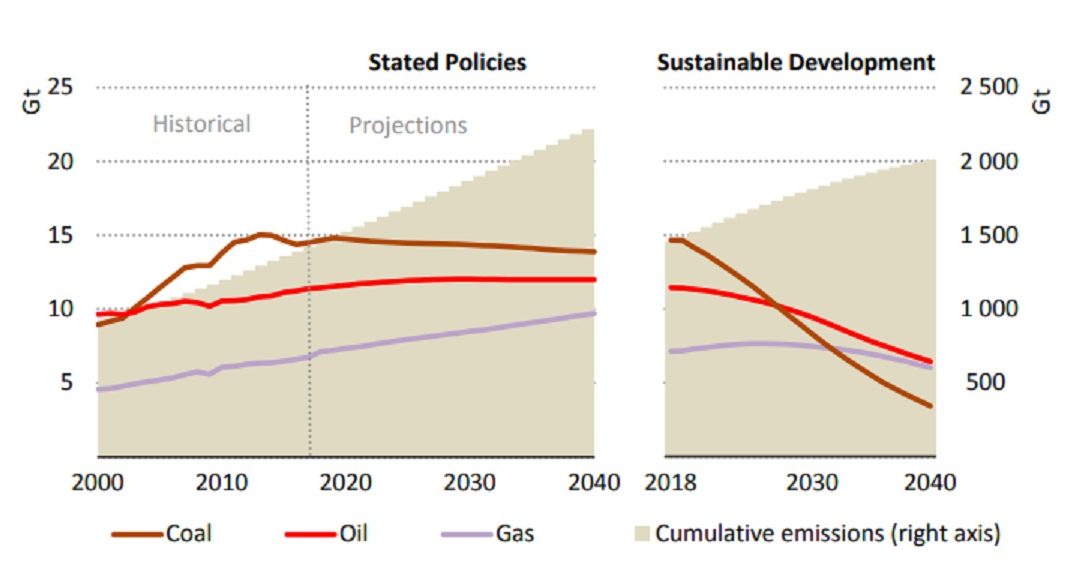SOURCE: Bloomberg
DATE: November 12, 2019
SNIP: Global greenhouse-gas pollution rose for a second year, ending a lull in emissions and putting the world on track for further increases through 2040 unless governments take radical action.
The findings in the International Energy Agency’s annual report on energy paint a grim outlook for efforts to rein in climate change and mark a setback for the increasingly vocal environmental movement.
It said emissions levels would have to start falling almost immediately to bring the world into line with ambitions in the Paris Agreement to limit temperature increases to well below 2 degrees Celsius (3.6 degrees Fahrenheit) since the industrial revolution. Instead, the organization’s most likely scenario shows net emissions won’t reach zero until at least 2070, or 20 years past the deadline suggested by climate scientists.
Strong economic growth, surging demand for electricity and slower efficiency gains all contributed to a 1.9% increase in carbon dioxide emissions from energy in 2018, the IEA said in a report released on Wednesday.
It’s another indication that efforts to shift the world away from the most polluting fuels are moving too slowly to have a major impact on preserving the environment.
Developing nations have deployed more coal plants even as industrial countries work to phase out the fuel, a legacy that will be felt for years to come since power plants are built to run for decades.
Global coal demand rose for the second year in a row in 2018. Three quarters of that came in the Asia Pacific region. If global coal policies remain unchanged, then demand will keep expanding for two decades, the IEA said.

